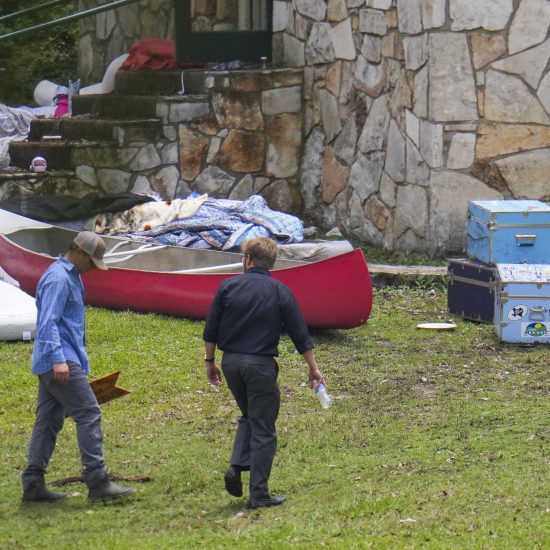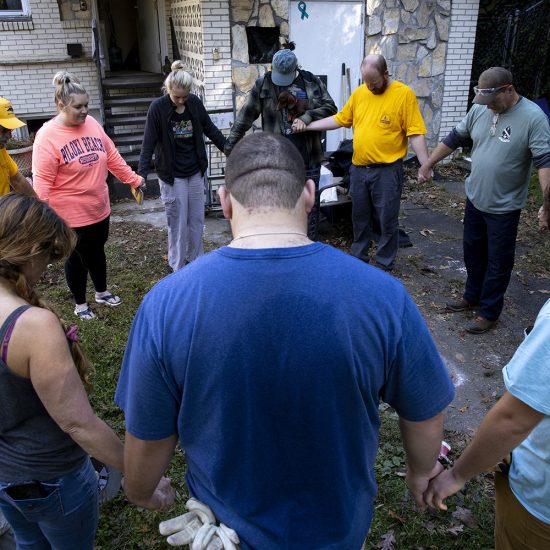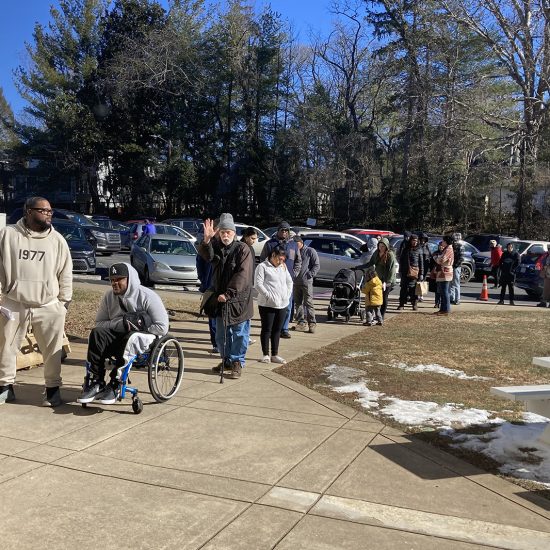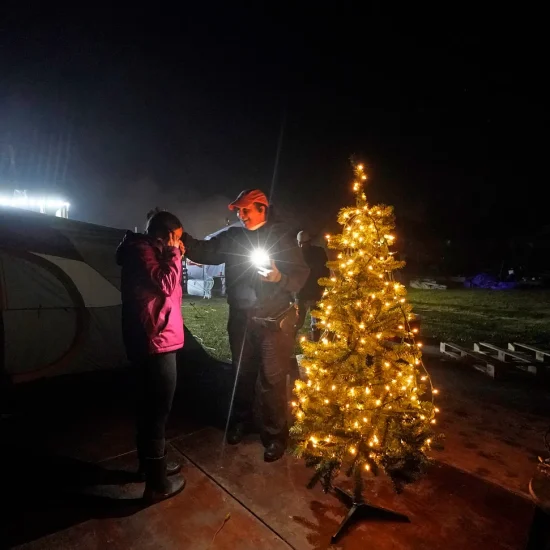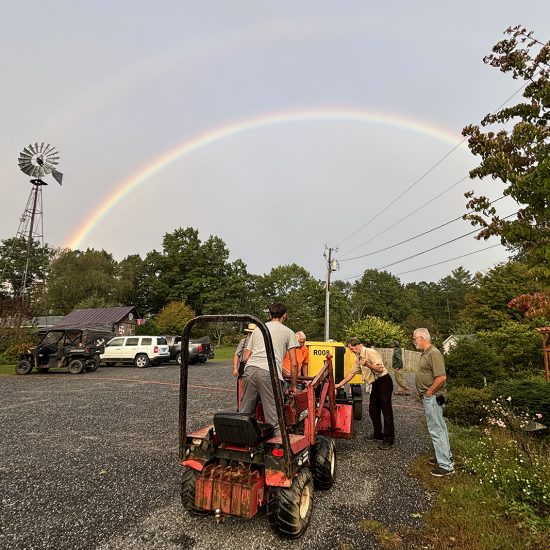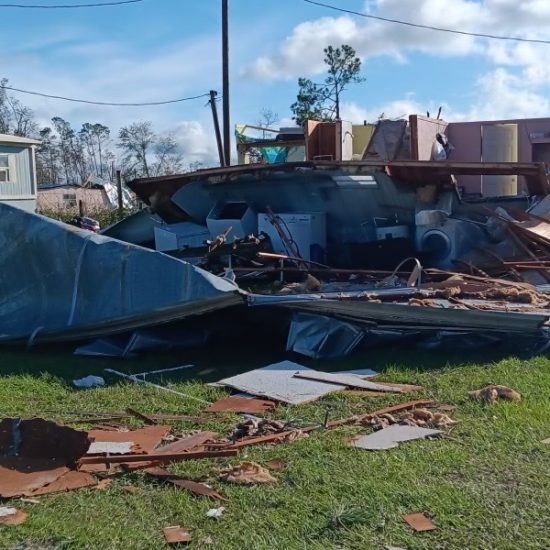WILMINGTON, N.C. (BP) — Rising floodwaters have cut off the supply chains of some Southern Baptist Disaster Relief efforts following Hurricane Florence, and others are increasingly threatened. But that’s not slowing down ministry to North Carolina communities hit by the storm.
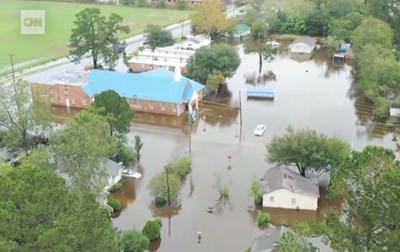 Rising floodwaters have cut off the supply chains of some Southern Baptist Disaster Relief efforts following Hurricane Florence, and others are increasingly threatened. CNN.com screen captureAs Baptist state conventions partner with the North American Mission Board to mount a disaster relief effort, the response is “a true testimony to the effectiveness of the partnerships throughout all state conventions,” said David Melber, president of Send Relief, NAMB’s crisis response arm.
Rising floodwaters have cut off the supply chains of some Southern Baptist Disaster Relief efforts following Hurricane Florence, and others are increasingly threatened. CNN.com screen captureAs Baptist state conventions partner with the North American Mission Board to mount a disaster relief effort, the response is “a true testimony to the effectiveness of the partnerships throughout all state conventions,” said David Melber, president of Send Relief, NAMB’s crisis response arm.
As of Sept. 17, disaster relief units from at least nine state conventions had set up feeding units or were preparing to do so for storm victims and emergency workers, according to a report from NAMB, which coordinates multi-state disaster responses.
Florence came ashore Friday (Sept. 14) and dumped more than 30 inches of rain in some regions, resulting it at least 23 deaths in the Carolinas as of Monday (Sept. 17). The storm was downgraded to a tropical depression and is moving northeast into Virginia.
Dozens of church buildings have suffered damage along a 150-mile stretch of coastline from Southport, N.C., to New Bern, N.C., with additional church damage as far inland as Fayetteville, N.C., some 140 miles from the Atlantic Ocean.
Serious structural damage to five buildings was reported at the North Carolina Baptist Assembly at Fort Caswell, a camp facility owned by the Baptist State Convention of North Carolina. The Baptist Children’s Homes of North Carolina reported storm damage at two of their campuses, including floodwater at their facility in Kinston, N.C., that appeared higher than 2016 flooding which caused $1.5 million in damage following Hurricane Matthew.
Wilmington, N.C.’s 117,000 residents are on “an island” surrounded by floodwater, said Roy Smith, network missionary for the Cape Fear Network of Baptist Churches. A feeding unit scheduled for setup at First Baptist Church in Wilmington can’t be reached by DR workers, he said, and chainsaw crews also cannot enter the city.
Members of Wilmington-area Wrightsville Beach Baptist Church have been removing downed trees from houses and patching roofs with tarps, Smith told Baptist Press. But they were on pace to run out of tarps Monday, with no way of leaving the area to buy more.
Thirty-five miles northwest, Atkinson (N.C.) Baptist Church also found itself on a flood-surrounded island and is sheltering stranded travelers in its fellowship hall, Smith said. However, the city only has enough food to last one more day.
Smith, the North Carolina convention and NAMB said officials are considering airlifting food and supplies to regions surrounded by water. As soon as trucks can enter, they are positioned to do so, Melber said.
Smith requested prayer “that God will provide some way to get supplies in — both food and water to families that don’t have them and tarps and things for the disaster relief crews.”
In New Bern, N.C., Temple Baptist Church is serving as a staging site for Baptist and other DR workers. A feeding unit began Monday serving 20,000 meals per day, Temple pastor Jim Pennington said. National Guardsmen slept in the church’s sanctuary Sunday night.
Pennington requested prayer that a shipment of additional food would arrive Tuesday before rising floodwaters add New Bern to the list of inaccessible communities.
As locals recover from storm damage, Pennington said, believers have supplemented their offers of physical help with spiritual encouragement, as in the case of a man whose house was destroyed and partially swept away shortly after he canceled his homeowner’s insurance policy.
Drawing on Jesus’ stilling of a storm in Mark 4, Pennington told the man, “God’s promise to you is that He will get you to the other side of this.” Sobbing, the man responded, “I needed that.”
Another area feeling Florence’s effects is Southport, where “significant damage” to Beach Road Baptist Church’s facility likely will take weeks to repair, according to North Carolina’s Biblical Recorder newsjournal.
Farther inland in Fayetteville, flooding was not as severe, said Jeff Isenhour, pastor of Arran Lake Baptist Church, a congregation of 700. Still, a section of the ceiling in its auditorium had collapsed.
Nonetheless, Arran Lake has been outwardly focused, buying breakfast at a local Waffle House for approximately 50 emergency workers Sept. 16 when called upon to help by the North Carolina Forest Service. “We were going to” prepare food and coffee ourselves, Isenhour said, “but our power was out.”
Despite the destruction, Baptists have much to anticipate as they spread the love of Christ in the Tar Heel State, Pennington said.
“It’s amazing how God is going to use this to reach our community for Christ,” he said. “I have no doubt in my mind whatsoever.”

